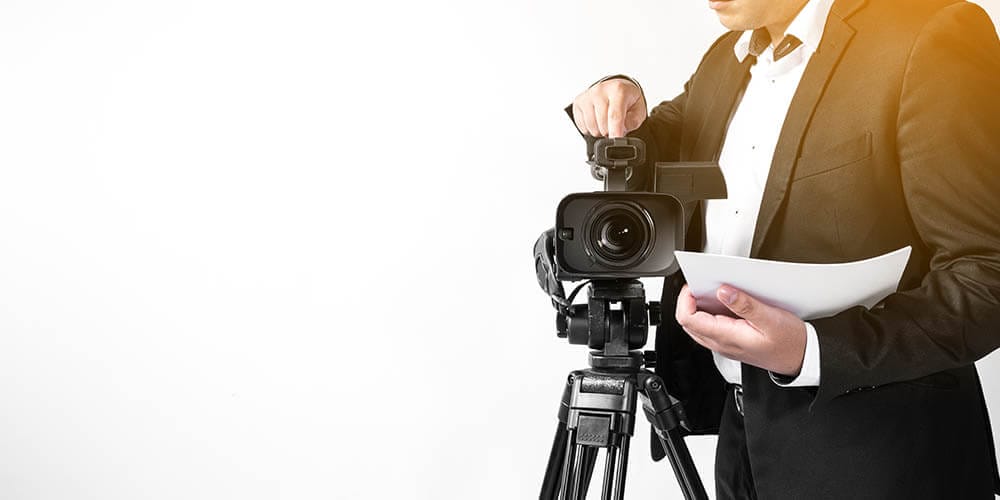The Role of Lawful Videography in Depositions and Tests
Legal videography has actually emerged as an essential device in both depositions and trials, supplying a diverse approach to recording witness statements. As lawful experts significantly acknowledge its worth, it triggers a deeper exam of how these visual documents can influence juror assumptions and trial end results.

Value of Lawful Videography
Legal videography plays a pivotal function in the documents and discussion of depositions and trials. This customized field combines technological skills with lawful understanding to produce a reputable record of procedures that can significantly influence situation results. The appearance of legal videography improves the understanding of witness statement, permitting jurors and courts to observe not only the spoken words but likewise the temperament, emotions, and body language of the witnesses.
In enhancement, lawful videography supplies an objective account of events, reducing the capacity for misconception that can take place with composed transcripts alone. This visual documentation serves as an essential tool during test discussions, promoting a more clear and even more influential story for both plaintiffs and defendants. The capability to replay video sectors throughout court procedures enables lawful groups to highlight key factors, strengthening their disagreements successfully.
The value of lawful videography extends beyond the court room; it likewise plays a crucial role in maintaining proof for future reference, whether for appeals or further lawsuit. Because of this, its combination right into the lawful process is essential for making certain a fair and exact representation of the truths, ultimately adding to the search of justice.

Process of Legal Videography
While catching the subtleties of depositions and tests, the procedure of legal videography involves a number of essential steps that make sure high-grade, accurate recordings. Initially, an expert lawful videographer prepares by reviewing the case materials and recognizing the details requirements of the deposition or trial. This preparation consists of familiarizing themselves with the individuals and the context, which aids in recording essential information.
On the day of the recording, the videographer sets up the necessary equipment, which usually includes high-definition video cameras, microphones, and proper lighting. Ensuring optimal angles and audio top quality is critical, as it straight affects the efficiency of the recording. The videographer communicates with attorneys and individuals to develop procedures, guaranteeing that everyone understands the recording procedure.
Throughout the deposition or trial, the videographer carefully records the process, paying close focus to both verbal and non-verbal cues. This consists of recording the attitude and reactions of witnesses and attorneys. After the session concludes, the videographer might modify the footage for clarity and conformity with legal criteria, producing an end product that accurately reflects the proceedings for future reference and usage Visit Your URL in lawful contexts.
Advantages in Depositions
The consolidation of videography in depositions provides many advantages that boost the general procedure of gathering proof. One primary benefit is the ability to capture witness testimonies with visual and acoustic integrity, supplying a much more accurate representation of the witness's temperament, tone, and body movement. This multidimensional technique allows lawyers and courts to assess trustworthiness better than traditional written transcripts alone.
Furthermore, videographed depositions function as an effective device for protecting testimony. Should a witness come to be unavailable for test, their videotaped deposition can be played in court, ensuring that their evidence remains available and appropriate. This element dramatically lowers the danger of losing vital info that might impact case outcomes.

Lastly, videography enhances the total professionalism of the deposition process, instilling confidence in customers regarding the thoroughness of their lawful depiction (legal videography). By leveraging innovation, attorneys can considerably enhance the effectiveness of depositions
Effect On Trials
In several tests, the combination of videography can considerably influence the discussion of evidence and the jury's assumption. Lawful videography captures witness testimonies and essential proof in a dynamic format, permitting jurors to involve with the material on numerous degrees. This visual part boosts the narration aspect of a test, offering context and emotional vibration that conventional text-based evidence might lack.
Moreover, video clip recordings can serve as powerful devices for impeachment during interrogation. When inconsistencies arise in between a witness's prior declarations and their court room statement, video proof offers an objective referral that can persuade jurors' opinions. This immediacy and quality can reinforce the integrity of a party's story while at the same time undermining opposing debates.

Future Trends in Legal Videography
As we look toward the future of legal videography, several emerging trends guarantee to reshape its function within the court. One considerable pattern is the combination of synthetic intelligence (AI) in video analysis and modifying. AI can improve the process of identifying key minutes in videotaped depositions, enabling lawyers to swiftly access appropriate material, thus enhancing efficiency Continue in case prep work.
In addition, the surge of online truth (VR) and augmented truth (AR) innovations is anticipated to change how jurors experience proof. legal videography. By immersing jurors in a substitute environment, these innovations can provide a more profound understanding of complex situations, bring about even more informed deliberations
Furthermore, the raising need for remote depositions, accelerated by the COVID-19 pandemic, will likely proceed. Lawful videographers will require to adapt to brand-new software program and platforms to ensure high-quality recordings in online settings.
Finally, the growing focus on data safety will require more stringent protocols for saving and sharing video proof. As the lawful landscape develops, lawful videographers should remain abreast of these trends to preserve their importance and efficiency in the judicial procedure.
Conclusion
In recap, lawful videography serves a crucial function in the judicial procedure, enhancing the stability of depositions and tests. By capturing the nuances of witness testaments, this medium not only maintains vital proof but likewise help in offering information successfully to jurors. The relevance of visual paperwork in reviewing trustworthiness and helping with interrogation can not be overemphasized. As technology remains to progress, lawful videography is poised to additional change its role within the legal landscape.